2024/01/06 Turn Back The Clock!
It's that time boys and girls where music can be understood, toes can tap, words are heard and there is a beat! Let's go for it!

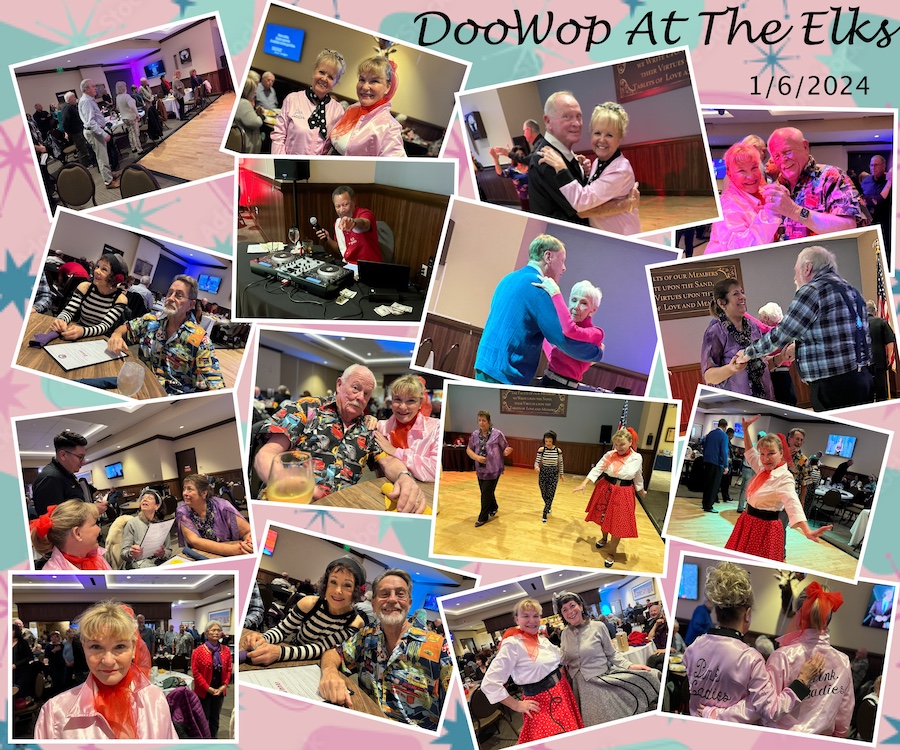
Click the image to get the full sized collage!

What words describe the 1950s? - Historians use the word "boom" to describe a lot of things about the 1950s: the booming economy, the booming suburbs and most of all the so-called "baby boom." This boom began in 1946, when a record number of babies–3.4 million–were born in the United States. About 4 million babies were born each year during the 1950s.

Ronnie made the announcement that we would start the evening slightly different than usual. He played Lee Greenwoods, "God Bless The USA".
This song brought the room to attention immediayely and everyone stood up and saluted our beautiful flag. You could heear some folks singing along! We live in the greatest country there every was and I hope we can keep it that way in spite of the politicians.

It brings tears to my eyes to see Americans rally loving America!

God Bless the Elks !

That's my girl!

Everyone smiles when Lee Greenwood sings!
Did You Know? - Some of the slang words used by the very coolest kids in the 1950s still infiltrate popular culture today, though others have fallen by the wayside. But just because some of these words are still around doesn't mean that everyone understands them. Once you learn these terms, however, you might just find yourself using them, too.
Actor: Most people hear the word "actor" and think of people who act on the stage or screen, but in the 1950s, an actor was synonymous with a show-off.
Agitate the gravel: This is a term hot-rodders used that simply means to leave in your car quickly. Before the majority of parking lots and driveways were paved, they were covered in gravel. When backing out quickly, a spray of gravel was sent up.
Ankle-biter:An ankle-biter is a small child.
Ape:Ape doesn't refer to the large animal found in zoos. Instead, "Sam went ape" means that Sam got really, really mad.
Backseat bingo:Teenagers in the 1950s had more access to cars than any generation that came before them. One way they used the freedom that cars allowed was to make out, or neck, in the backseat, an activity also called backseat bingo.
Bad news:This refers to a person who is depressing or difficult to be around.
Bash:This term sounds violent, but it has nothing to do with going ape! Instead, it means a great party.
Blast:A blast means a great time.
Chariot: Cars were an important part of teen culture in the 1950s, and a chariot was just another nickname for a car.
Cloud nine: If someone is said to be on cloud nine, that means they are really, really happy.
Cranked: "I'm so cranked about the concert tonight" is a very 1950s way of saying you are very excited.
Cruisin' for a bruisin':Are you looking for trouble or just in the mood to fight? If so, you are cruisin' for a bruisin'.
Cut out: This has nothing to do with scissors: To cut out is to leave quickly.
Dibs: Dibs means a prior claim.
Dig: If you dig 1950s candy it just means you really, really like it.
Don't have a cow: Although younger generations identify this slang term with Bart Simpson, it predates him by decades. The meaning hasn't changed, though: It still means "don't freak out."
Flick: A flick is a movie. The term comes from the fact that images flicker across the screen during a movie.
Flip: Although this word is typically associated with gymnastics, the coolest 1950s teens meant it as being very excited.
Heat: Hot-rodders used this term for the police.
Meanwhile, back at the ranch … :Westerns were very popular on television during the 1950s. Often, the action would veer away from the ranch, the main setting, and then a scene would explain what happened at the ranch while the other action took place. This birthed the term "meanwhile, back at the ranch," which was used to corral a storyteller who had moved away from the main point.
Pad: Pad was a very cool way to refer to your home.
Passion pit:Passion pits were also known as drive-in theaters, popular places to play a little backseat bingo.
Peepers: Peepers are eyeglasses.
Punch it: Punch it means to give it gas and go fast.
Rattle your cage: If someone annoys you or makes you angry, that person rattles your cage.
Souped up: When you take a normal car and turn it into a hot rod capable of screaming down the streets, you've souped up your car.
Split: To split means to leave.
Square:A square is an uncool person.
Threads: Clothes are made up of cloth, and cloth is made up of threads; that's where this slang term for clothes originates.
Total:Another car-related term from the car-obsessed 1950s. If you total your car, you've destroyed it past the point of repair.
Word from the bird:This term comes from a 1950s song called "The Bird is the Word." It simply means the truth.

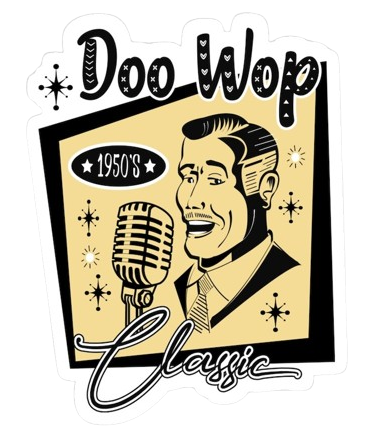

The best music every sang and done by groups we will always remember!
Do You Remember?
"Earth Angel" by the Penguins (1954): The Penguins—made up of four black high school students from Los Angeles—recorded the romantic, tender track "Earth Angel" in a garage. It went on to become the second doo-wop song to enter the top 10 on the Billboard charts in 1954.
"Sincerely" by the Moonglows (1954): This 1954 song, recorded by the five-man doo-wop group the Moonglows, reached number one on the US R&B charts and number 20 on the Billboard Hot 100.
"Why Do Fools Fall in Love" by Frankie Lymon and the Teenagers (1956): This 1956 song propelled lead singer and soprano Frankie Lymon to stardom. With lyrics that ruminate on the pointless swooning of lovelorn fools, this song became a massive hit, spending 19 weeks on the Billboard charts in 1956.
"Maybe" by the Chantels (1957): "Maybe" by the Chantels is considered one of the first girl group hits, reaching number two on the Billboard R&B charts, and being named #199 in Rolling Stone's list of The 500 Greatest Songs of All Time. Arlene Smith sings lead on this track, which follows the thoughts of a young woman who outlines a series of "maybe" scenarios in which her lover might return to her.
"Little Star" by The Elegants (1958): The Elegants were one of the first Italian-American doo-wop groups to record a hit. "Little Star" adapted the lullaby "Twinkle, Twinkle, Little Star" into a doo-wop hit that reached the top of the R&B best sellers and Billboard Hot 100 charts in 1958.
"I Wonder Why" by Dion and the Belmonts (1958): Another Italian-American doo-wop group Dion and the Belmonts had their first hit with "I Wonder Why," which reached number 22 on the Billboard Hot 100. The song expresses a young man wondering why his sweetheart loves him.


Dianne attempts to order!

Now she is looking for something else!

Bob is eying the menu.
Did You Know? - The word "menu", like much of the terminology of cuisine, is French in origin. It ultimately derives from Latin "minutus", something made small; in French, it came to be applied to a detailed list or résumé of any kind.

"Garr Conn, we would like to order, Sill Vous Plate"
(They are practicing their French)
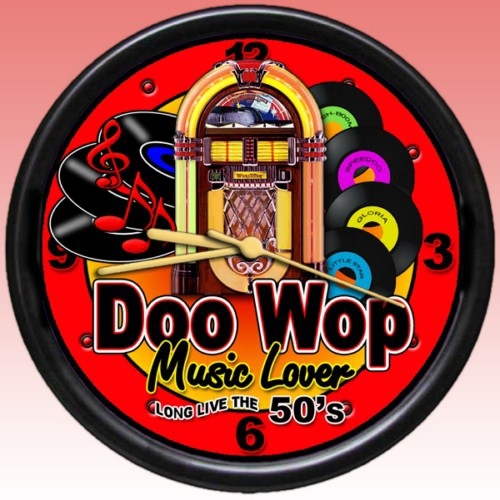

"What, I get to order?"

Paul is thinking, watch out for the smoke coming from his ears!

Mary whispers in my ear!

"I am now ready!"
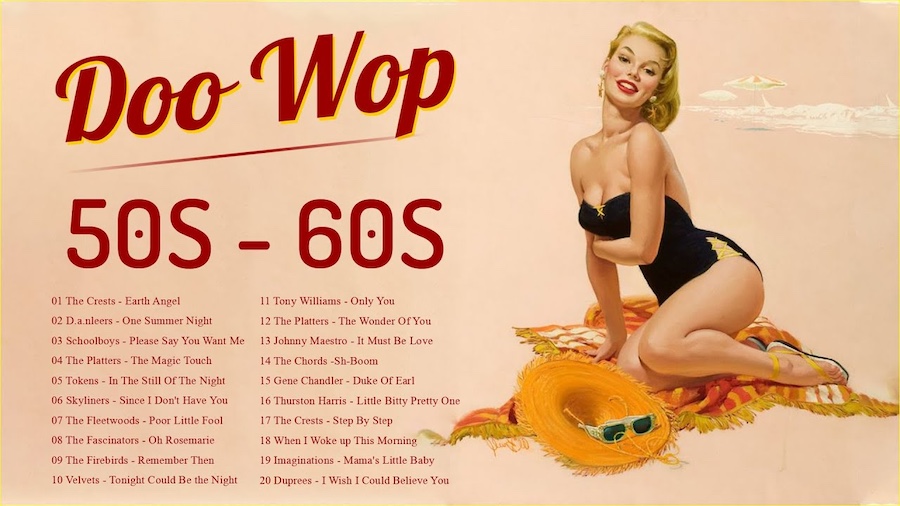
Do you remember these songs?

Did You Know? - pink lady, noun: a cocktail consisting of gin, brandy, lemon juice, grenadine, and white of egg shaken with ice and strained.
In the movie Grease, the Pink Ladies were a group of girls who were friends with the T-Birds, a group of guys who were their counterparts. The Pink Ladies wore matching pink jackets and acted as a sort of subculture within the larger high school community.
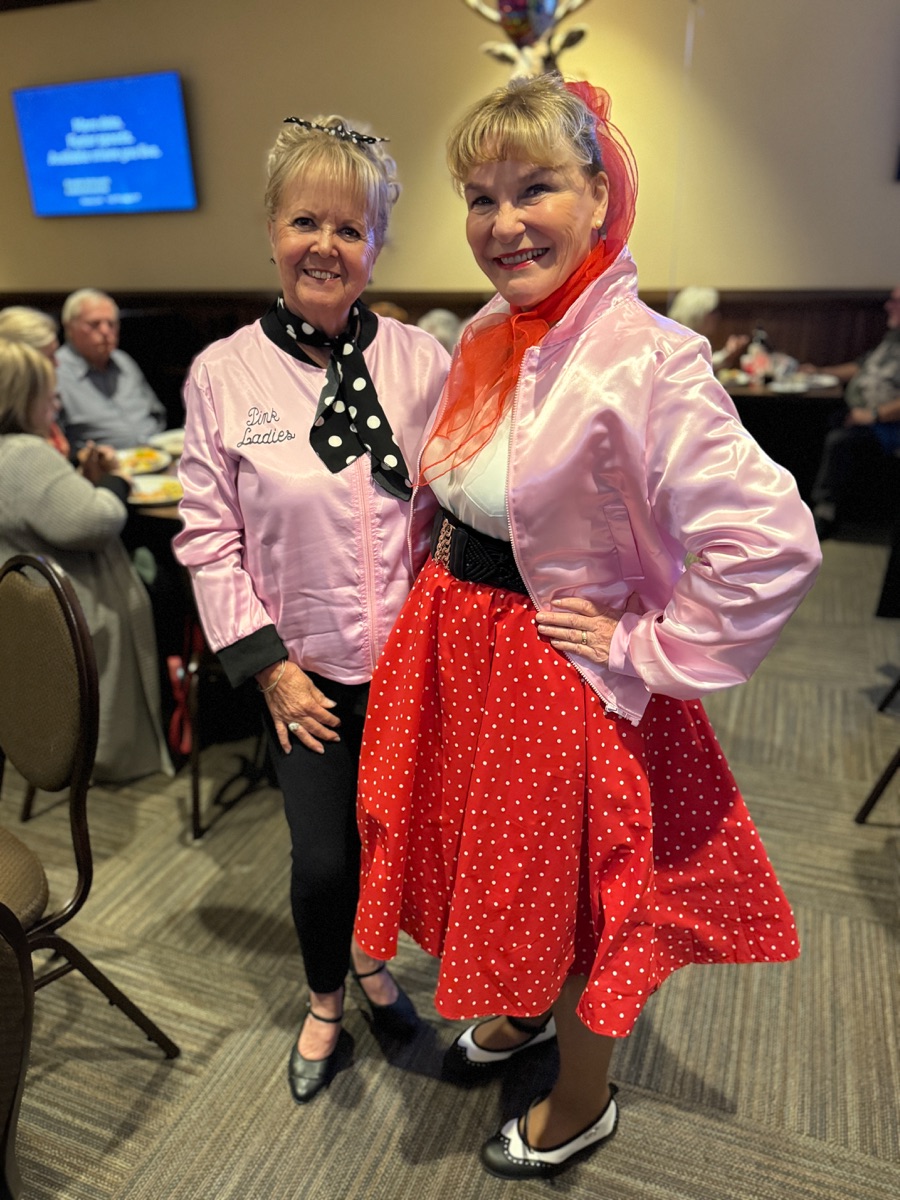
Love those jackets!
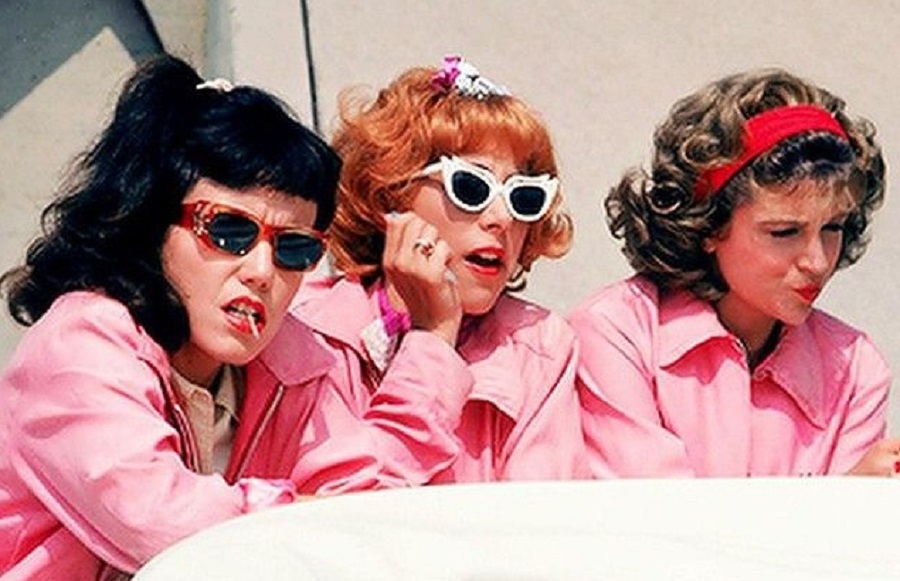
Love those sun glasses!

Comparing notes!

They decide is is OK indoors!

Love the hair doos ladies! How long did it take Frenchy to do that?
Click the arrow and take a listen


How about these songs?

The house was full pf Oldies but Goodies!

Ronnie played the music at a tolerable level; he is the best!

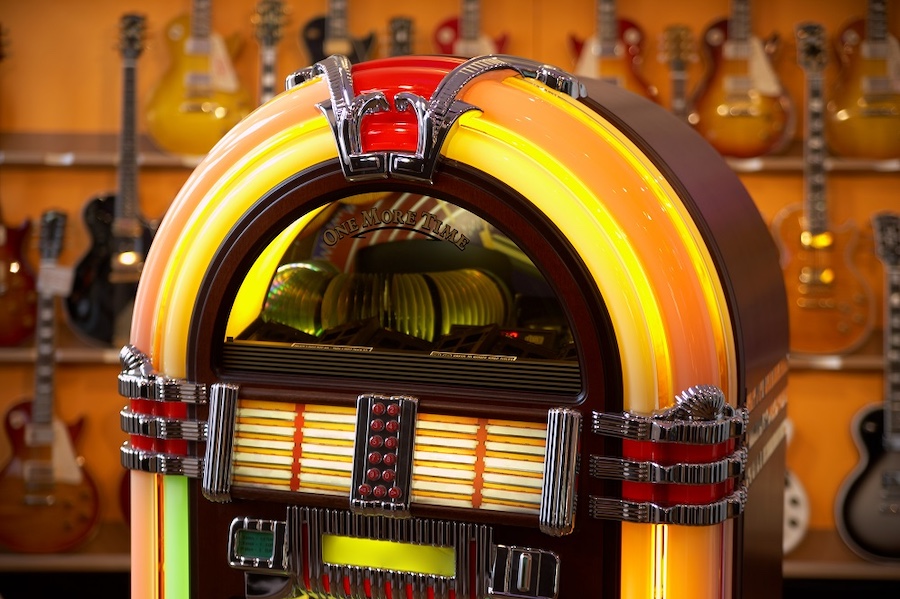
Why is it called a jukebox? - - The word "jukebox" came into use in the United States beginning in 1940, apparently derived from the familiar usage "juke joint", derived from the Gullah word juke, which means "bawdy". Manufacturers of jukeboxes tried to avoid using the term, associated with unreputable places, for many years.
The jukebox arguably reached the height of its popularity in the 1950s. Experts estimate there were as many as 750,000 jukeboxes across the U.S. at that time. Over time, records gave way to compact discs (CDs). Today, modern jukeboxes simply play digital music files.

Love that jacket!

Big smiles.
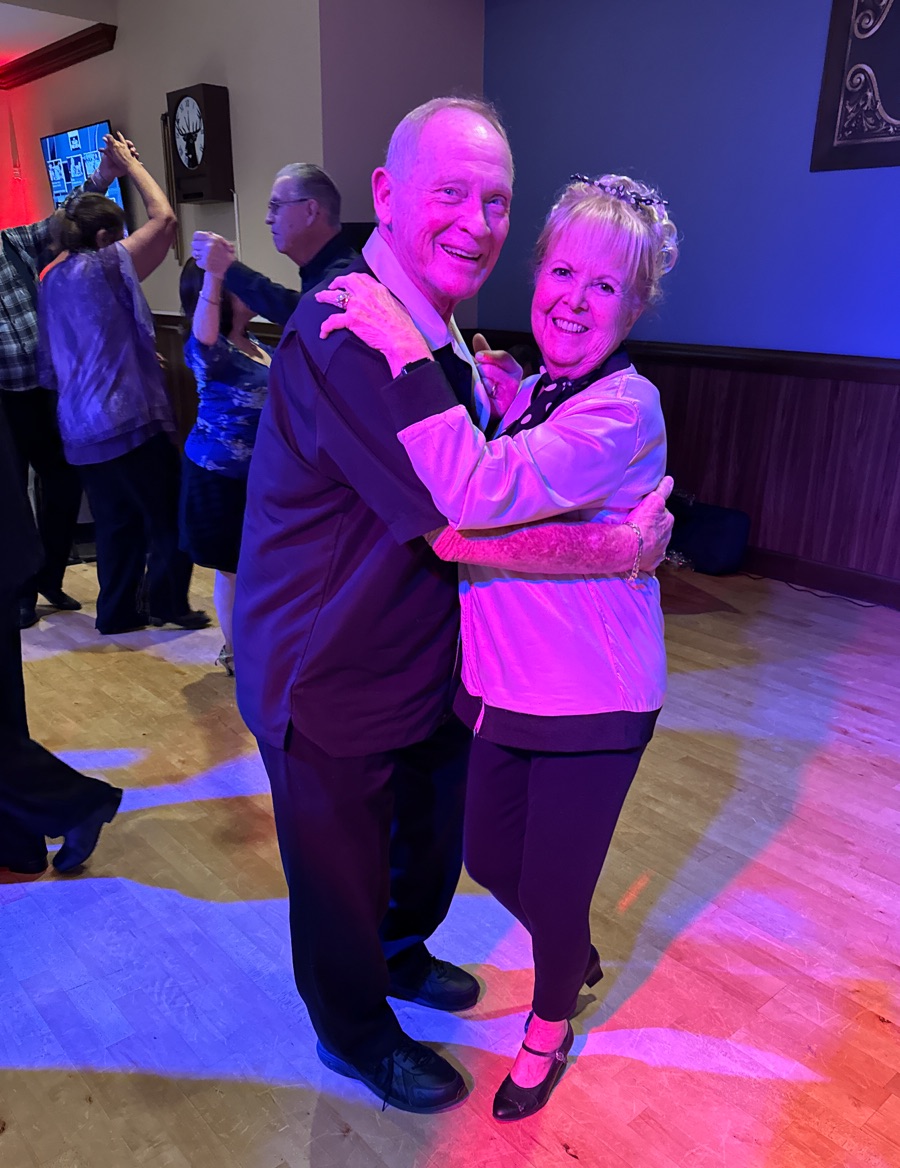
Don't be embarrassed! We all turn red on occasion!

The red spotlight is on us!! What did Mary do?

Dr. Capps tripping the light fantastic.



Hang on Jim!!! Do not, I repeat, do not let loose!

Let's listen carefully


Reach for the sky!

A new step entitled "The Belt Buckle Polisher"


Go girls!

Donna could have been Frenchy this evening.

One step forward and one step back!
The Rockettes have nothing on these ladies!

They had their rooting section; Patti was the leader!

Looking good guys!

We did not know Patti was famous!
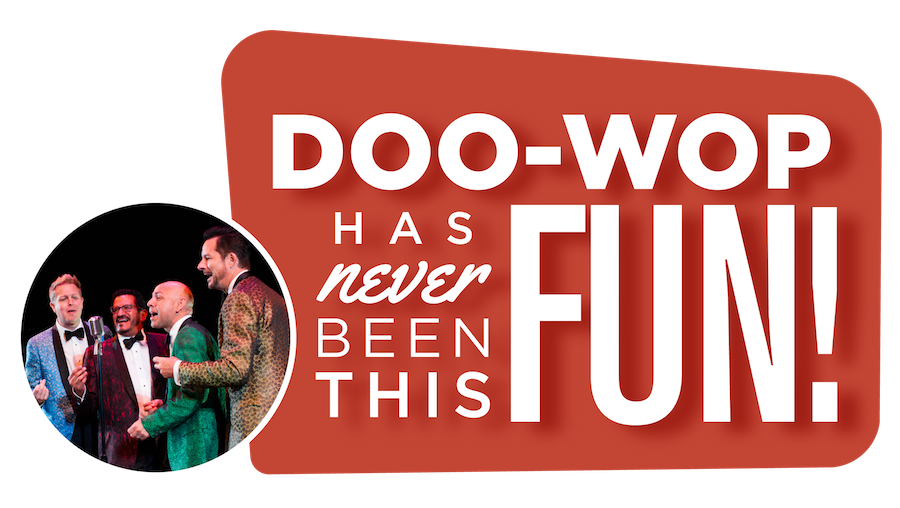
Ronnie shows us how it is really done!

We are about to get a music lesson!
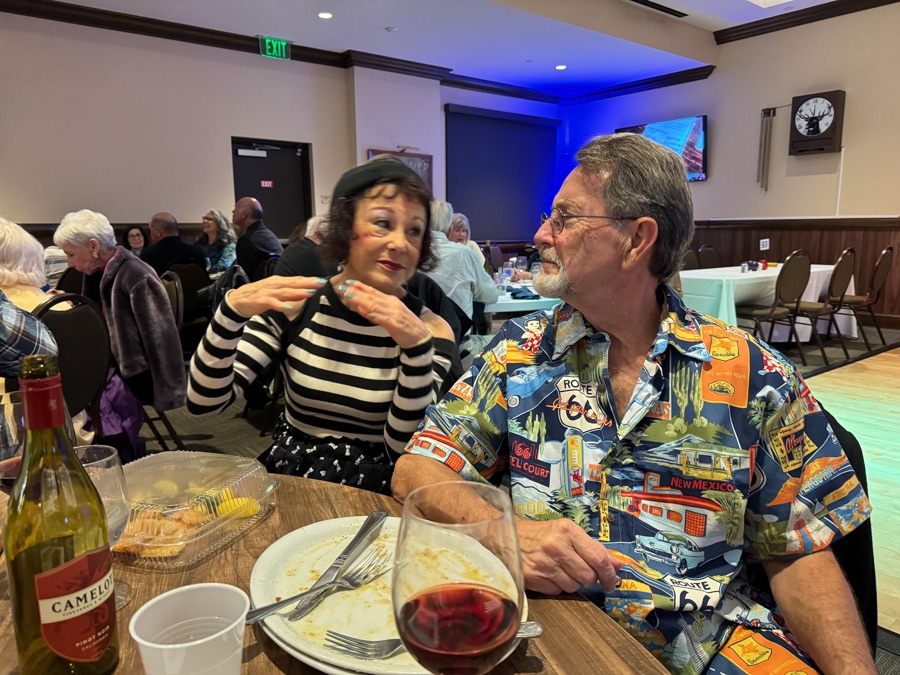
Place your hand like this and then you move them rapidly. This will be fun!

Fun?

"Yes Dear!"



Looking good ladies.

How about these??
Did You Know? - There are few garments that conjure up American nostalgia quite like a poodle skirt. This skirt became synonymous with the 1950's carefree lifestyle of the post war years and a dance floor icon that exemplified the energy of new cultural phenomenon called Rock n' Roll.
Our 256 At the Hop pattern is a time-capsule of 1950's women's fashion that embodied the spirit of a new generation. This nicely curated collection of classic garments comes with all the extra details needed to add as much 1950's nostalgia as you like. The pattern includes not only the iconic Poodle Skirt, but a classic short sleeve blouse pattern, and knitting instructions for a cropped cardigan. To complete the look, coordinating winter holiday and poodle dog appliqués and knitting designs are provided to embellish the skirt and sweater. The seasonal holiday and poodle motifs are in keeping with the original history of the first poodle skirts designs as you will learn.
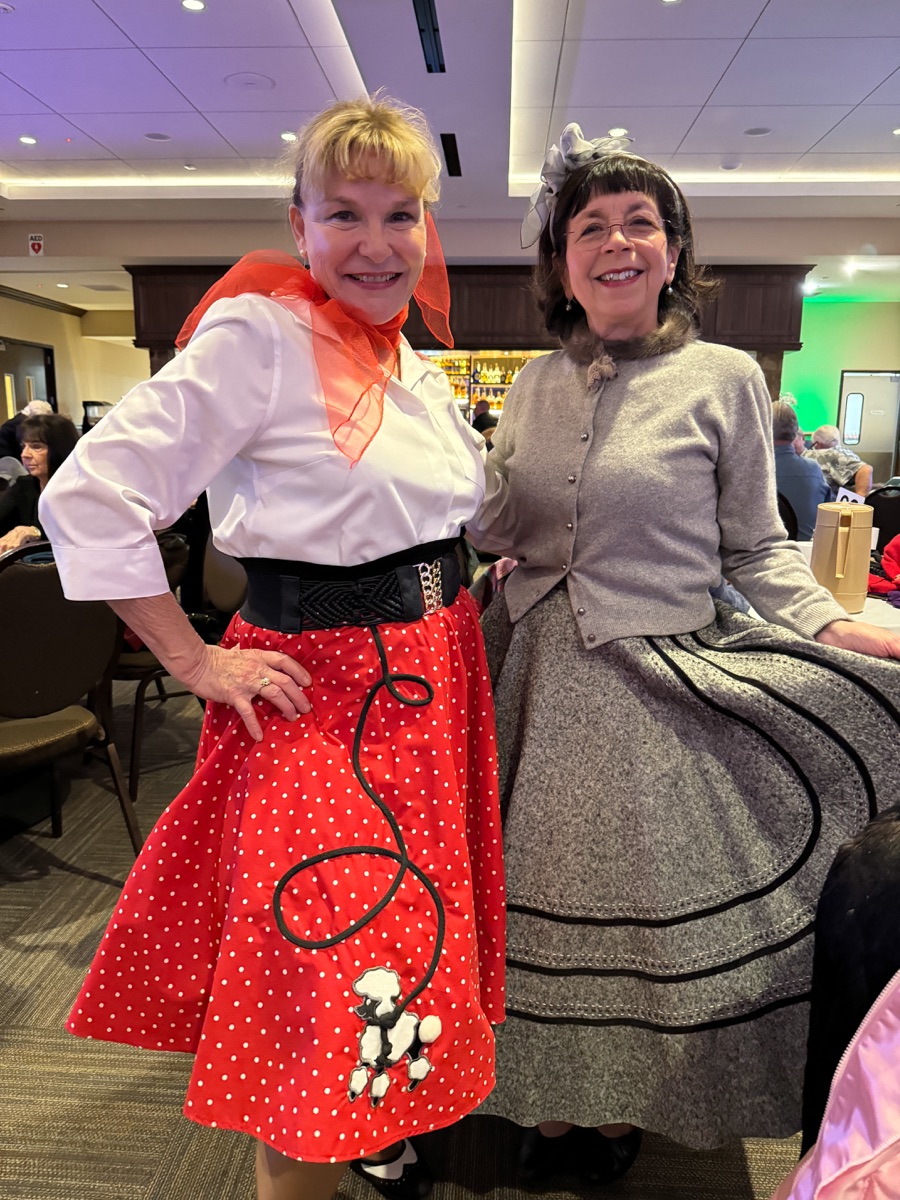
Where is your poodle Dianne?


So we are talking about fashions and clothes and Vicky says, "You know the different between boys and girls picking out clothes to wear?" We said no! She then says:
Girls: They check the weather, what time of day it is, what is the venue, mode of travel, duration of the event, colors, texture, and many more details BEFORE making a selection of clothing to wear!
Boys: The go into the closet, grab the first thing on the rack and give it a sniff to see if it tolerable; then they put it on!
Vicky proceeds to give us a demo of the boys selection process.

"This looks good, not too wrinkled!"

"Snort, sniff, sniff"

One more time... YES, it's a good one.... "Dear, I am ready to go!"

Dianne visits her brother.

Paul rounds everyone up by going to the tables and begging them to go to the dance floor. We had a good turn out. We were surprised how many people had sore knees after we asked them to come up and dance!
Did You Know? - The Hokey Pokey, also known as Hokey Cokey in some parts of Australia, the United Kingdom and the Caribbean, is a campfire song and participation dance with a distinctive accompanying tune and lyric structure.

Dr. Capps made the circle!
Keep an eye on him, he is a closet "Hokey Pokey-ologist"

Patti is ready to go!
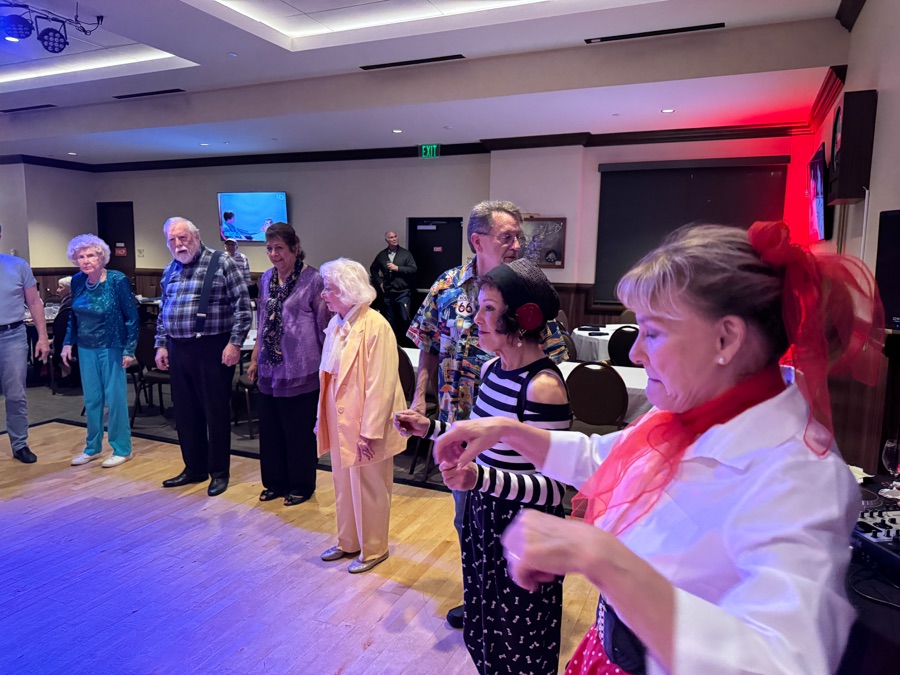
Mary warms up!


Ronnie does the deed, the Hokey Pokey is underway.

The DJ area turned red... the devil made him do it!

Elbows out, I think!


Shake that thing!
Note: Oxygen is available at the bar!
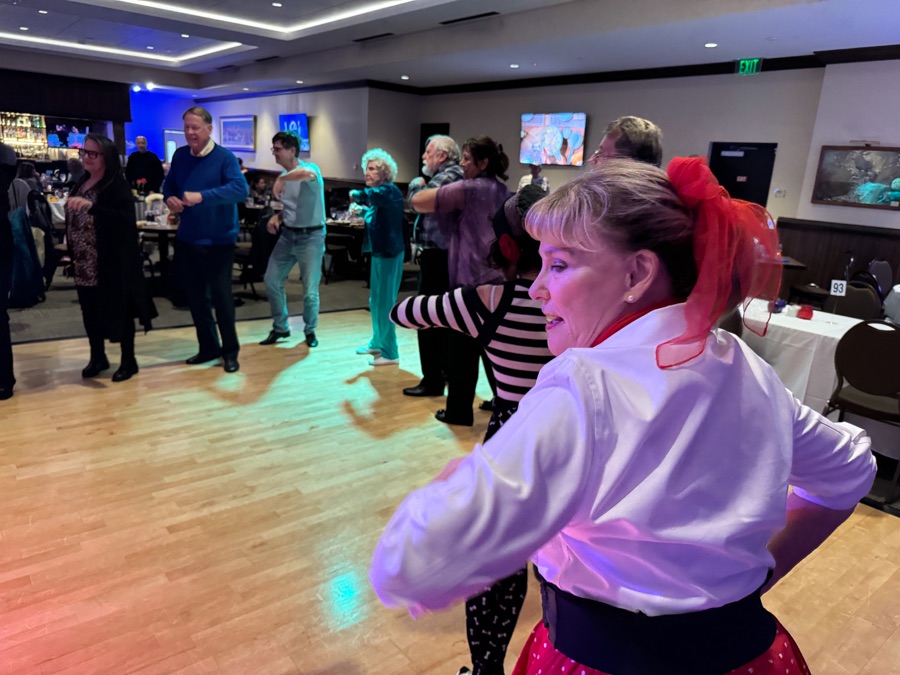
Our gang is getting into this!
Iris (who is 97) is doing her thing!

Bills is going to town!

We will send him a gallon or so tomorrow!

Do the Hokey Pokey and they are turning themselves around.

Way too much fun!

Patti checks for any parts that may have come loose during the dance!

Ta Da!


He is "The Man"!

Good Night All!

See you soon
Thank you Ronnie for making it such a nice evening. Your music was right-on, I know because my feet are tired. See you soon!!







